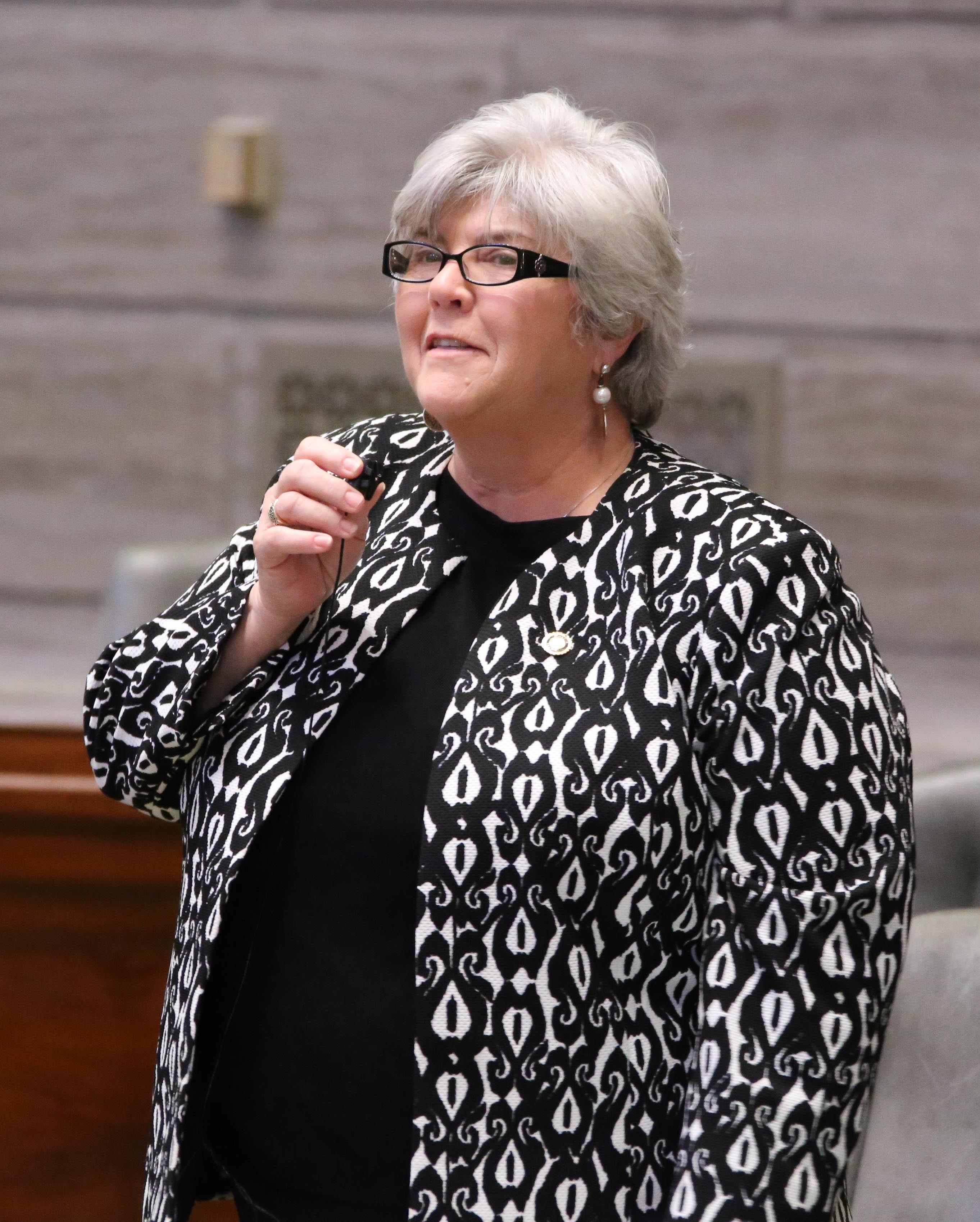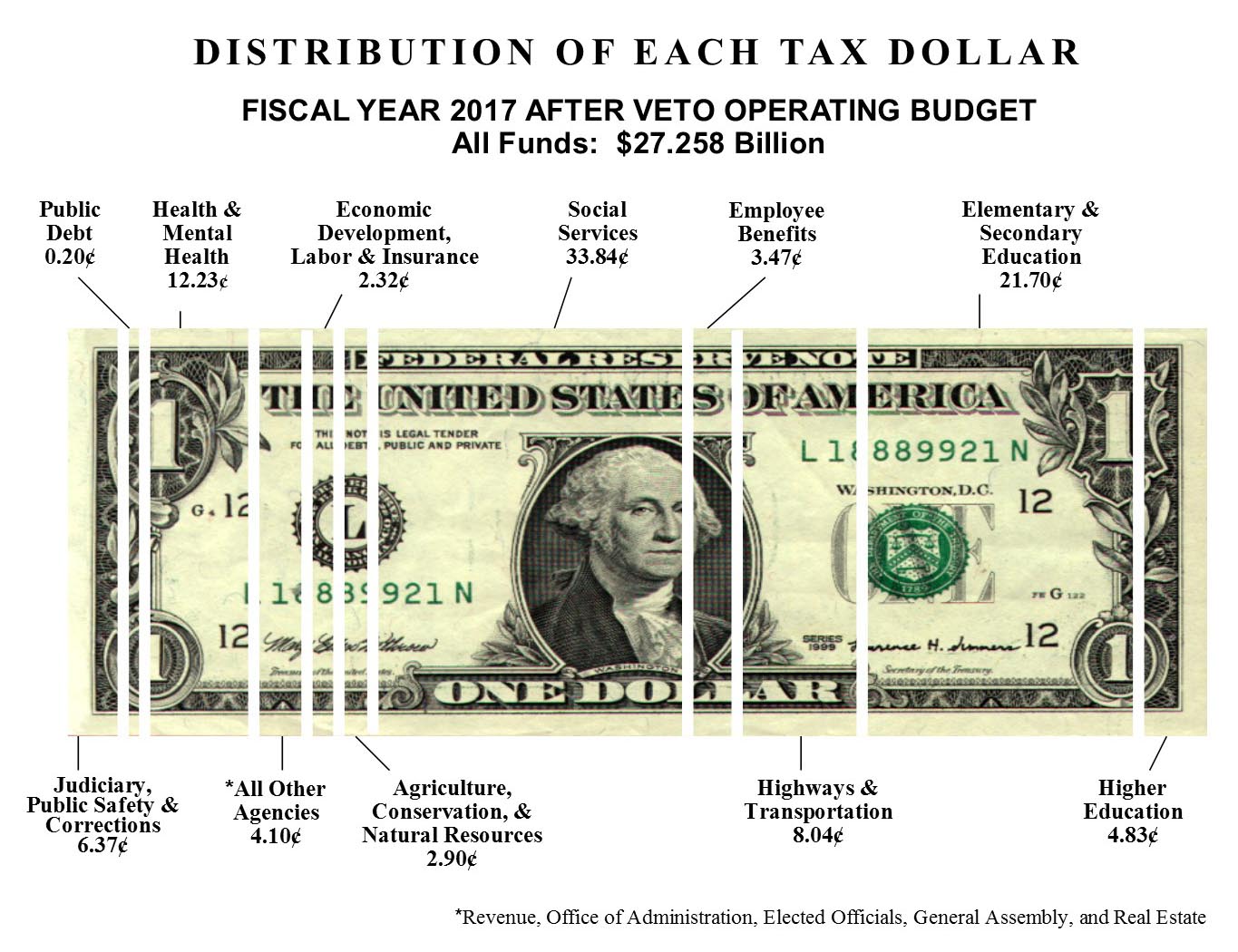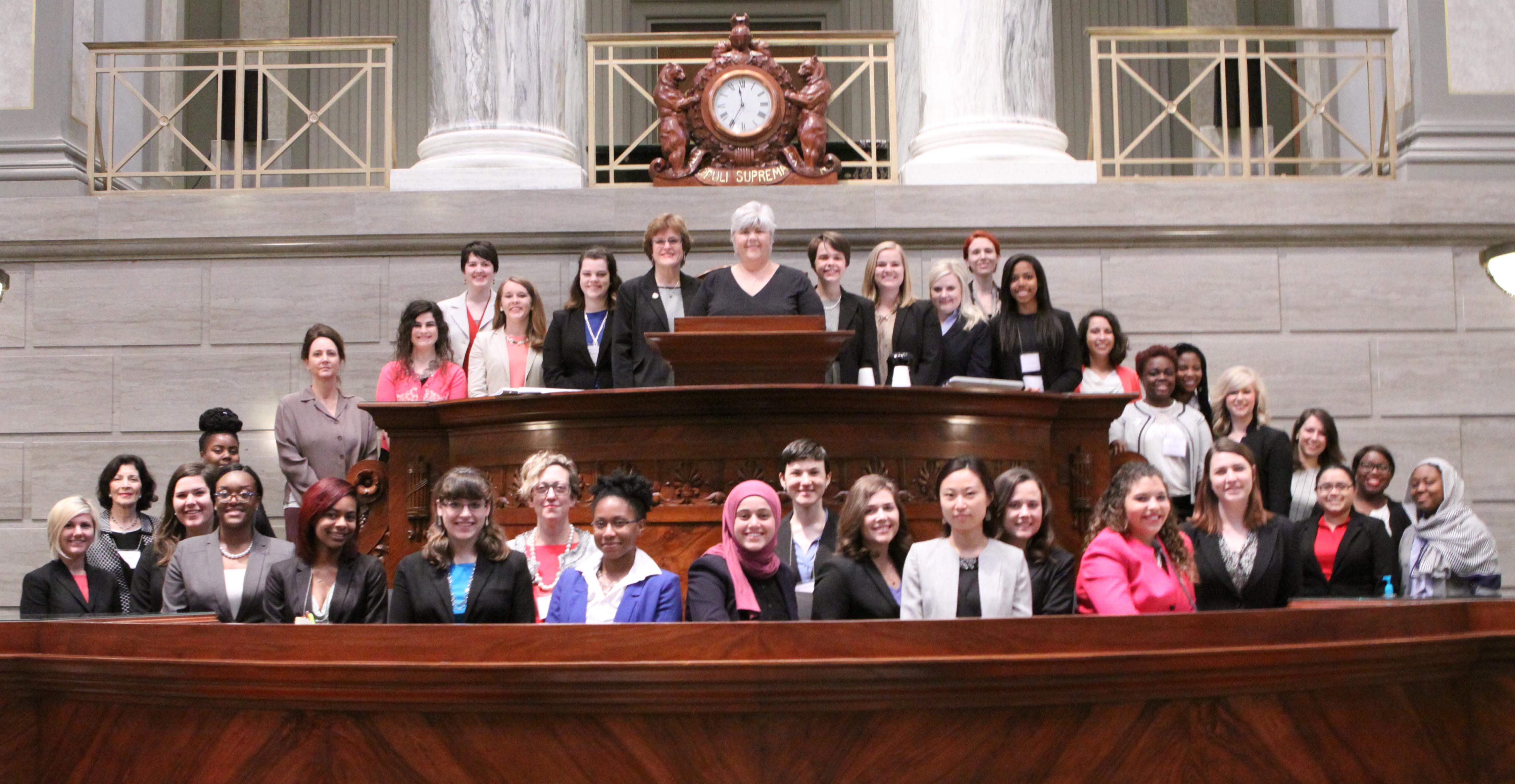
Website | E-Mail Me | Newsroom | Subscribe | Unsubscribe
|
2016 End of Session
Capitol Report |
Contact:
Janson Thomas—(573) 751-2420 |
|
| Legislation Sent to Governor |
The Second Regular Session of the 98th General Assembly concluded on Friday, May 13. Missouri lawmakers diligently worked to send more than 140 bills to the governor during the 2016 session. As of this report, roughly 65 of those measures have been signed, and two vetoed bills were overridden while still in session. The governor has until July 14 to sign or veto the remaining bills; if he takes no action by then, they will automatically lapse into law.
 |
Pictured above, Sen. Walsh discusses legislation on the Senate floor
during the 2016 session. |
|
I am very pleased to report that several pieces of legislation I sponsored or co-sponsored were successfully passed by the Legislature and have either received the governor’s signature or are among those currently awaiting his consideration.
I sponsored Senate Bill 625 to designate the portion of state highway 367 from the southern city limit of Bellefontaine Neighbors north to the intersection of Interstate 270 in St. Louis County as “Sgt. Peggy Vassallo Way.” In August 2015, Sgt. Peggy Vassallo was struck and killed by a vehicle while rendering aid to another driver after being involved in an accident. Sergeant Vassallo had served with the Bellefontaine Neighbors Police Department for 15 years and had previously served with the St. Louis County Police Department for over 13 years.
Legislation I co-sponsored making it easier for victims of domestic violence to recover their cell phone number from their abuser was signed by the governor in early June. Senate Bill 838 allows Missouri courts to order a cell phone carrier to transfer the billing responsibility and rights of a cell phone number from a wireless account holder, including the rights to the cell phone number of any minor children, to a petitioner when he or she has obtained an order of protection against the account holder.
State lawmakers also gave their approval to House Bill 1562, legislation that seeks to expand the crime of sexual trafficking of a child, among other provisions. The final version of the bill includes language from two measures I sponsored this session to provide greater protections for victims of stalking and human trafficking in Missouri: Senate Bill 886, relating to the crime of aggravated or first degree stalking; and Senate Bill 888, relating to human trafficking victims.
Many people wrongly assume human trafficking is a problem that primarily occurs in developing nations, but that is simply not the case. This modern day form of slavery has occurred in all 50 states. In fact, according to the National Human Trafficking Resource Center, there were 67 reported cases of human trafficking in Missouri in 2015 alone. My legislation provides an extra layer of protection for Missouri’s victims of human trafficking by allowing them to participate in the secretary of state’s address confidentiality program: Safe at Home.
Safe at Home was established in 2007 to provide survivors of domestic violence, sexual assault, rape or stalking with a substitute mailing address through the secretary of state’s office, which then forwards all mail and maintains the confidentiality of the participant’s location. According to the secretary of state’s office, the program has protected more than 2,000 Missourians to-date.
House Bill 1562 also includes language I sponsored updating Missouri’s criminal code so that a person commits the offense of stalking in the first degree, which is currently a class E felony, if he or she knowingly accesses or attempts to access the address of someone who is participating in the Safe at Home program.
Finally, House Bill 1434, which I handled in the Senate, establishes additional rules and procedures for certain counties’ tax increment financing commission. |
| Missouri's Fiscal Year 2017 Budget |
In April, the General Assembly completed its work on the state's $27.3 billion budget for Fiscal Year 2017, fulfilling its only constitutionally required duty ahead of schedule. The Senate Appropriations Committee, of which I’m a member, focused on creating a budget that increases funding for education and ensures public money is spent wisely. I firmly believe government should be a constructive partner by investing in solving problems.
 |
Funding for K–12 education will increase by roughly $70 million, and higher education will see a 4 percent across-the-board increase. Delivering on a quality education requires substantial resources. Locally, North St. Louis County schools will receive funding that will make a difference, including: $57,313,567 for the Hazelwood School District; $41,116,047 for the Ferguson-Florissant R-II School District; $15,877,344 (an increase of $616,396) for the Jennings School District; and $34,343,400 (an increase of $237,439) for the Riverview Gardens School District.
The budget also provides Missouri's scholarship programs with additional funding, including an increase of $4 million for Access Missouri, $2.5 million for the A+ Schools Program and $500,000 for Bright Flight. St Louis Community College will receive a $2.9 million increase for a total of $49 million funding for the upcoming fiscal year. Early childhood special education will receive a funding increase of $21 million, while the Missouri Preschool Program will get an additional $1 million.
Our veterans at the St. Louis Veterans Home will receive $17.8 million — a $421,827 increase over FY 2016 funding. The capital improvement appropriation bill contained an additional $6.3 million for the statewide maintenance and repair of veterans’ homes.
To support increased medical care costs, the Bellefontaine Habilitation Center will receive $16.9 million, which is an increase of $315,385. The budget also provides $5.6 million (an increase of $222,607) for the Division of Youth Services’ Missouri Hills Youth Center for a 2 percent provider rate increase for a full fiscal year.
The Legislature also committed increased funding ($3.6 million) for water quality studies as well as $1.7 million for the operations of Missouri State Parks. Finally, state employees will receive a 2 percent pay increase effective July 1.
Fiscal Year 2017 will run from July 1, 2016, to June 30, 2017. |
| Status of Sen. Walsh's 2016 Legislation |
The final status of my sponsored bills for the 2016 legislative session is as follows:
|
| Free Summer Lunches for Children |
During the school year, public assistance provides students from low-income families with free or reduced-priced meals at school. For many of the thousands of children who depend on this support, these are the only hot, nutritious meals they will get all day.
Education experts say public assistance programs allow kids to become better learners and are an important part of providing a quality education. While I certainly agree, I also believe the main reason we provide these meals as a state and nation should be much simpler: in a modern 21st century nation such as the United States, with incredible amounts of wealth and excess, no child should ever go hungry. Unfortunately, many children are faced with hunger when school releases for the summer.
In an effort to ensure Missouri's youth continue to have access to nutritious meals, the U.S. Department of Agriculture funds summer nutrition programs to supplement the free meals students receive during the school year. Missouri’s Summer Food Service Program (SFSP) is available to children ages 0 through 18 whose family incomes are less than or equal to 185 percent of the Federal Poverty Guidelines; and to income-eligible adults over 18 years of age who have been determined by a state educational agency to have a disability and who participate in a school-based program for the disabled during the year.
To find a summer food site near you, click here or call (888) 435-1464. For more information,
visit www.dhss.mo.gov. |
| Summer Conservation Events |

Summer Conservation Events
Several upcoming events are being hosted by the Missouri Department of Conservation, and constituents are encouraged to take advantage of these fun and free opportunities located in the 13th Senatorial District. All events will be held at the Columbia Bottom Conservation Area, near the confluence of the Missouri and Mississippi rivers. Reservations can be made any time Wed.-Fri., 8 a.m. to 5 p.m.; Sat. & Sun., 8 a.m. to 4 p.m. Call (314) 877-6014.
Discovering Columbia Bottom’s Diverse Ecosystems
Spend some of your summer discovering Columbia Bottom’s diverse ecosystems. The bottomland prairies, wetlands and forests are waking up and are primed for adventure. Wednesday through Sunday come into the visitor center and check out a discovery backpack for a few hours to aid in your efforts. We offer forest, birding, prairie and wetland/slough backpacks. You will need some form of ID to check out a backpack. Visitor Center hours are Wed.-Fri., 8 a.m. to 5 p.m.; Sat. & Sun., 8 a.m. to 4 p.m. Call for more information.
When: July 1-31, 8 a.m. to 4 p.m.
Who: All ages
Save the Dates! Managed Youth Dove Clinic and Hunt
Join us for our managed youth dove clinic and hunt. Bring your sponsor, shotgun, safety glasses and hearing protection to Jay Henges Shooting Range on Aug. 27 for the clinic. Don’t have a firearm? Some are available for loan. You will learn about dove biology, hunter safety and hunting regulations before practicing in effective wing shooting with clay birds. Once you’ve attended this mandatory clinic, become Hunter Education certified by Sept. 1 and you can join our youth dove hunt at Columbia Bottom. Up to 40 youth will be selected depending on field conditions. Preference is given to first time applicants. Call for an application.
When: July 1-31, 8 to 8:30 a.m.
Clinic: Saturday, Aug. 27, 4 to 7 p.m.
Hunt: Thursday, Sept. 1, 1 p.m. to sunset.
Who: Ages 11-15
Hopping Homes
The sounds of summer often feature the choruses of the frogs and toads of Missouri. Let’s decorate an abode for these vocal amphibians that you can place in your yard or garden for your own private concert. If time allows we will venture out on the area to find some of our jumping residents. Reservations begin July 6.
When: Wednesday, July 20, 12:30 to 2 p.m.
Who: All ages |
| Voter Photo ID and Missouri Voter Information |
|
There has never been evidence of voter fraud in Missouri. After waging a filibuster on Republican voter ID legislation for several hours over multiple days, Democrats in the Missouri Senate forced a compromise on House Bill 1631. The compromise would allow any registered voter without a valid photo ID to cast a regular ballot after signing a statement attesting to their identity. If no statement is signed, the voter can still vote provisionally. It also stipulates the state must pay for documentation for IDs in order to be in effect.
For questions regarding elections in Missouri, contact the secretary of state’s office by calling (800) 669-8683. Any other questions about the office may be directed to (573) 751-4936. For more information about voting in Missouri, visit www.GoVoteMissouri.com. The website has resources for voter registration, contacting your local election authority, finding your voting location, requesting an absentee ballot and more.
Information for Residents of St. Louis County
St. Louis County Election Board
12 Sunnen Dr. Maplewood, MO 63143
(314) 615-1851
www.stlouisco.com/YourGovernment/Elections |
Registration Deadline
July 6
October 12
|
Election Date
August 2
November 8
|
Active duty military members should use www.MoMilitaryVote.com to register to vote and request and receive their absentee ballots. The portal’s resources are open to any Missourian who is eligible to vote and residing overseas, including families of active duty service members, members of the Peace Corps and faith-based charity workers. |
| Sen. Walsh Meets with Leadership Academy Fellows |
 |
Pictured above, Sen. Gina Walsh with fellows from the 21st Century Leadership Academy in the Senate Chamber in May. |
|
In May, I had the great honor and privilege of meeting with members of the 2016 class of the Sue Shear Institution for Women in Public Life: 21st Century Leadership Academy — an intensive week-long residential leadership development program designed to inspire civic engagement and encourage women’s public sector leadership. This national model for a university hosted program began in 1998 as a campus residential program for 36 students, four from each of the nine Missouri public universities.
Throughout the week, these exceptional young women learn and practice leadership skills, discuss important public policy issues, connect with women leaders from the public and private sectors and explore the meaning and practice of leadership in a diverse society. The curriculum includes interactive panel discussions, small group exercises, skill-building workshops and opportunities to network with women leaders who are shaping public policy as elected officials, government leaders and policy advocates.
A highlight of the week is a day trip to Jefferson City, where fellows participate in a mock legislative session at the Capitol and have lunch with women leaders in state government and the judiciary.
Over 500 college women have graduated from the Leadership Academy and are making a difference as leaders in their communities. For more information on the 21st Century Leadership Academy, please click here or contact the Institute for Women in Public Life at (314) 516-6623. |
 |
|
|
|